“We are privately owned by a Trust, which means all our profits are reinvested in the company. This translates to steady growth – maybe slower compared to other service providers, but we’re quite proud of that steady growth,” explains Franciane Chevot, Senior Business Development Manager at Almac.
Franciane brings over a decade of experience at Almac to her role as Senior Business Development Manager. Having started as a development chemist before transitioning to business development six years ago, she offers a unique scientific perspective when engaging with clients.
Ahead of CDMO Live, Franciane shares how Almac’s unique ownership structure, scientific expertise, and customer-centric approach have positioned the CDMO as a trusted partner for pharmaceutical and biotech companies across the drug development lifecycle.
A Distinctive Business Model Built for Long-Term Success
Almac’s approach to business sets it apart in the CDMO landscape. With 55 years of industry experience, approximately 7,500 employees, and 18 facilities worldwide across Europe, North America, and Asia, the company has established a global footprint. However, it’s their ownership structure that truly differentiates them.
“We are privately owned by a Trust. Ultimately what that means for us is that all our profits are reinvested in the company,” Franciane explains. “That also translates to steady growth, our growth is maybe slower compared to other providers but we are quite proud of that steady growth. That’s what we’ve been doing for the last 55 years.”
This reinvestment approach has allowed Almac to take a long-term view of business development rather than focusing on short-term gains, creating stability that benefits both the company and its clients.
Scientific Expertise Driving Client Success
Almac’s scientific capabilities are at the core of their value proposition. As Franciane describes, the company is “agnostic in terms of therapeutic indication,” supporting all types of pharmaceutical projects regardless of disease area.
“The type of project from a drug substance perspective might be, for instance, a biotech that has never scaled up its project and is looking at its first one-kilogram GMP batch,” Franciane shares. “A recent example was a biotech that utilised tin chemistry and selective purification at the end of the process. Where we added value was first making that process more economical and supporting a more scalable chemistry. That’s really where the expertise of our scientists comes in. On that project, we were able to deliver about 1.2 kilograms within 12 months with 16 steps to develop.”
Another example highlights their innovative approach: “We had a reduction process which was done by metal catalyst chemistry, and we looked into using our biocatalysis expertise. We used a biocatalysis process to improve the enantioselectivity of that process with higher than 99% selectivity, and we were able to support the client with a process that met their requirements.”
This scientific focus extends to how Almac structures its project teams. Franciane notes, “Most of our project managers have a scientific background as well. From day one, we are really focused on the scientific solution for our customer, and we tailor it to their needs.”
Best Practices in Knowledge Transfer and Project Management
Almac’s approach to project management demonstrates best practices that pharmaceutical companies should look for in a CDMO partner. Their methodology prioritizes direct communication between scientists and clients.
“From day one, we are really focused on the scientific solution for our customer, and we tailor it to the needs,” Franciane explains. “We think that speaking about the scope and defining milestones with the customer is a good start at project initiation.”
This scientific-to-scientific discussion model creates transparency and efficiency. “Our customers will speak directly with the people doing the experiments in the lab. That is how we can manage schedules and meet milestones.”
Their project managers serve as critical bridges between technical teams and clients. “Our project managers, because they have some understanding of the project at a deeper level, will be able to bring in the people that are required and also proactively assess what needs to be done.”
This approach to knowledge transfer and project management has proven particularly valuable for biotech companies that may lack extensive manufacturing experience.
Quality and Regulatory Excellence
With a global client base, Almac maintains rigorous quality standards that meet diverse regulatory requirements worldwide.
“We are audited by the standard regulatory authorities like the FDA, the MHRA for the UK, and the HPRA for Ireland, but we’ve also been audited by Japanese authorities like the PMDA and, of course, by our customers on a regular basis,” Franciane explains.
The company has recently enhanced its quality management system through digital transformation. “We recently integrated a cloud system, which has allowed us to give real-time visibility to our customers to see how quality events are progressing, providing a superior solution for them.”
This digital integration extends beyond quality systems. “We have now established E-Notebooks for our standalone analytical lab, which is particularly for our global analytical facilities. Our analysts are able to communicate on the same system, which is really good for customers that are based in Europe and want to work in the US or vice versa.”
Strategic Capacity Management: A CDMO Best Practice
Capacity management represents one of the most significant challenges facing CDMOs today. Almac’s approach offers best practices for balancing capacity allocation between existing clients and new opportunities.
“In the last few years, there’s been quite a concern and restraint for capacities with in the industry. That’s why we decided to build a new plant at our site in Craigavon,” Franciane says. “Part of that plant is already completed and has extended our peptide supply for solid-supported peptides. We now have 28,000 square feet of peptide API manufacturing capacity.”
Beyond physical expansion, Almac strategically manages their project portfolio to optimize capacity utilization. “The portfolio of our projects is maybe 60% development, 40% commercial. By the nature of the projects, unfortunately, they don’t all reach the commercial stage, so there is a natural selection in the types of projects,” Franciane explains.
This balanced approach allows the company to continuously take on new development projects while supporting existing clients that reach commercial stage. “Something we’re really proud of is the good communication we have with our existing customers, where they are capable of telling us quite in advance what they require, or at least what they think they will require in the future. That really helps in terms of management of capacity and allocation.”
The result is a capacity management strategy that accommodates both new and existing clients without compromising service quality—a critical consideration for pharma companies selecting CDMO partners.
Sustainability as a Core Value
Environmental responsibility has become increasingly important in CDMO selection, and Almac has positioned itself as an industry leader in sustainability.
“I think we are one of the first CDMOs that’s been really engaged on that subject,” Franciane states proudly. “We have an annual sustainability report published on our website. We’ve received excellent feedback on it, and it’s starting to be quite a template for other companies in Northern Ireland.”
These aren’t just words – Almac has committed to concrete actions and targets. “We have a commitment to net-zero emissions, and we focus on our people, planet, and community. One proof has been that we’ve been ISO certified last August 2024. In terms of Scope 3 emissions, we have committed to a 27.5% reduction by 2030. Since last year, our headquarters is powered by a wind farm.”
This commitment to sustainability extends to their scientific processes as well. “We try to bring greener chemistry and greener processes into scale-up – reduction of solvent and driving efficiency in terms of yields and cost-effectiveness. We really have a sustainable vision in everything that we do from the process, but also on overhead and global company outlook.”
Future Vision: Steady Growth Aligned with Client Needs
Looking ahead 3-5 years, Almac plans to maintain its steady growth trajectory while ensuring investments align with client requirements.
“We grow slow and steady, and this is also driven by our customer needs. Any growth will be really focused on what our customers require,” Franciane emphasises. “In the last ten years, we started doing commercial manufacturing, but before that, we didn’t really do any commercial manufacturing. It’s because our projects that were early development developed to commercial manufacturing. So that’s really how we grow.”
The new manufacturing plant represents a significant step in Almac’s growth journey, but the company is already looking beyond that. “With this new GMP plant coming online in early 2026, we are looking at moving into low tonne commercial scale manufacture. Our non-GMP site may move into GMP intermediate manufacturing as well, extending that capability that we already have, and then also going into GMP flow chemistry.”
The Partnership Approach
Throughout the interview, Franciane emphasises Almac’s commitment to true partnership with clients. The company’s scientific foundation enables meaningful collaboration that goes beyond typical vendor relationships.
“Our customers speak directly with the people doing the experiments in the lab,” Franciane explains. “That is how we can manage schedules to be achieved and milestones to be met. Our project managers, because they have a deeper understanding of the project, will be able to bring in the people required and also to proactively assess what needs to be done.”
This direct scientific communication, combined with the company’s long-term stability and reinvestment approach, creates an environment where clients can build lasting partnerships rather than transactional relationships.
Franciane Chevot is hosting an Outsourcing Excellence roundtable at CDMO Live about Maximising Every Euro: Smart CMC Strategies for Emerging Biotechs. Book your ticket here

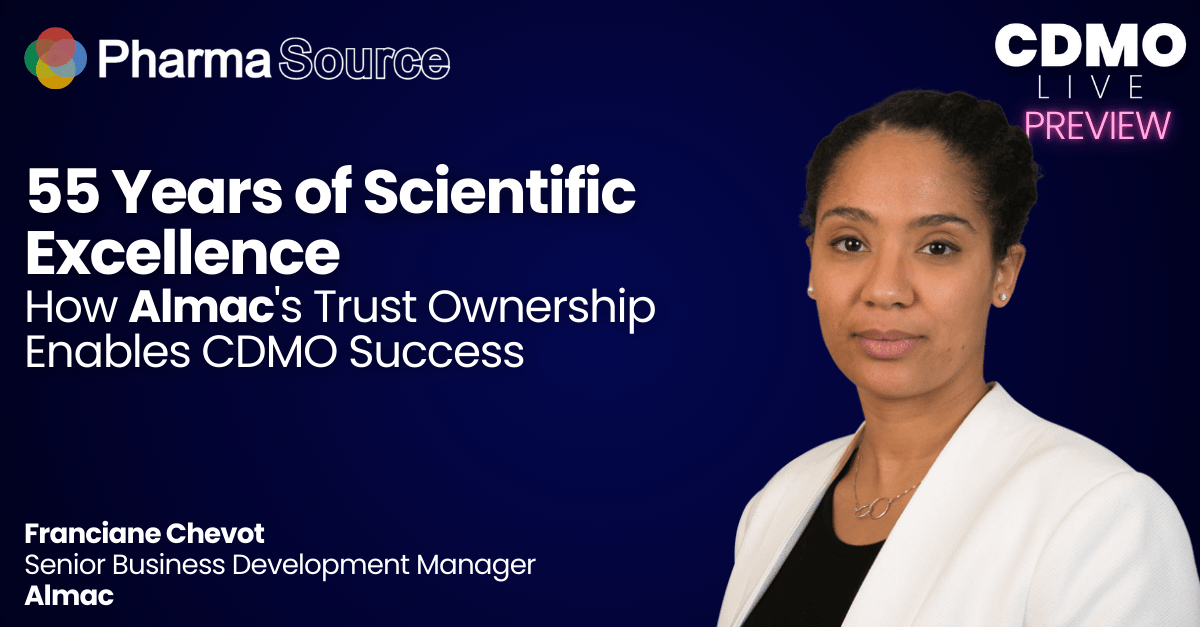

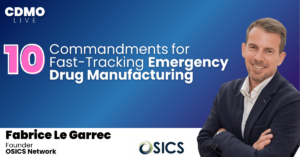

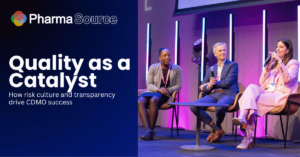




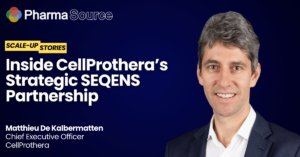
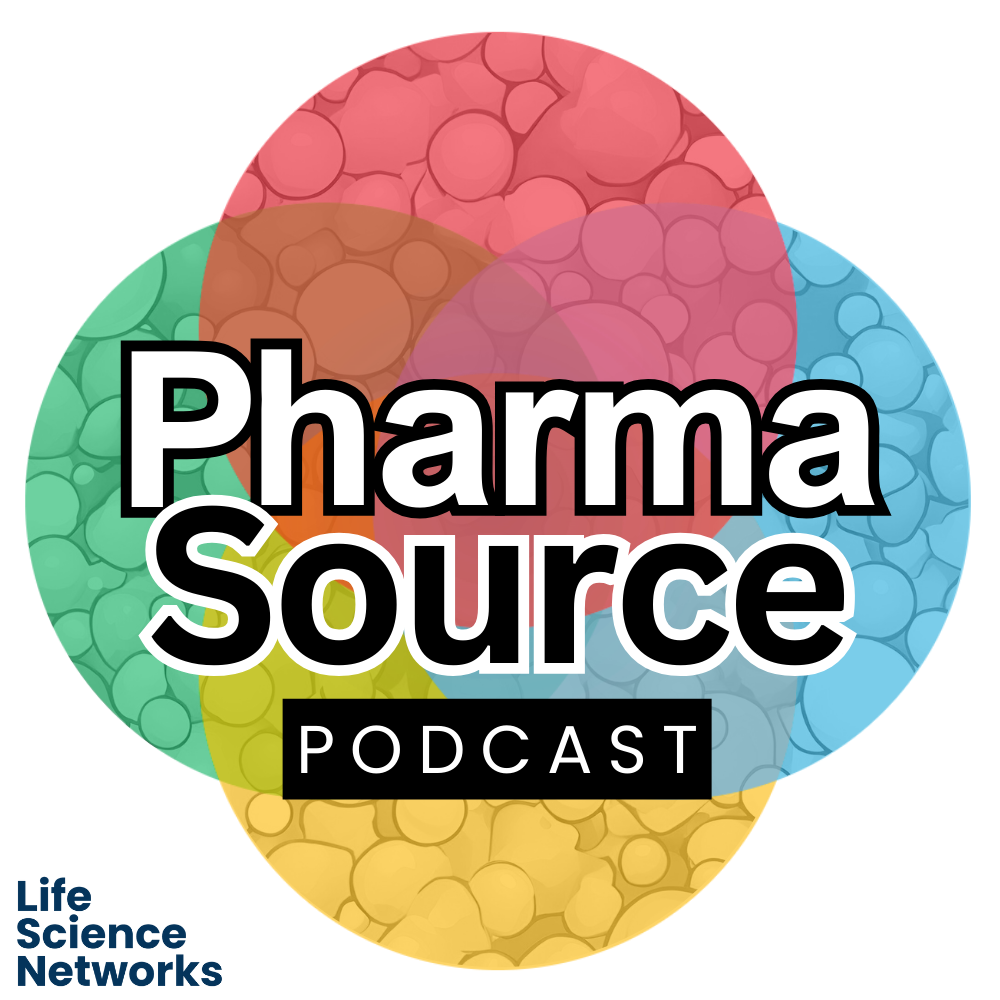
 Stay ahead of trends and best practices
Stay ahead of trends and best practices
